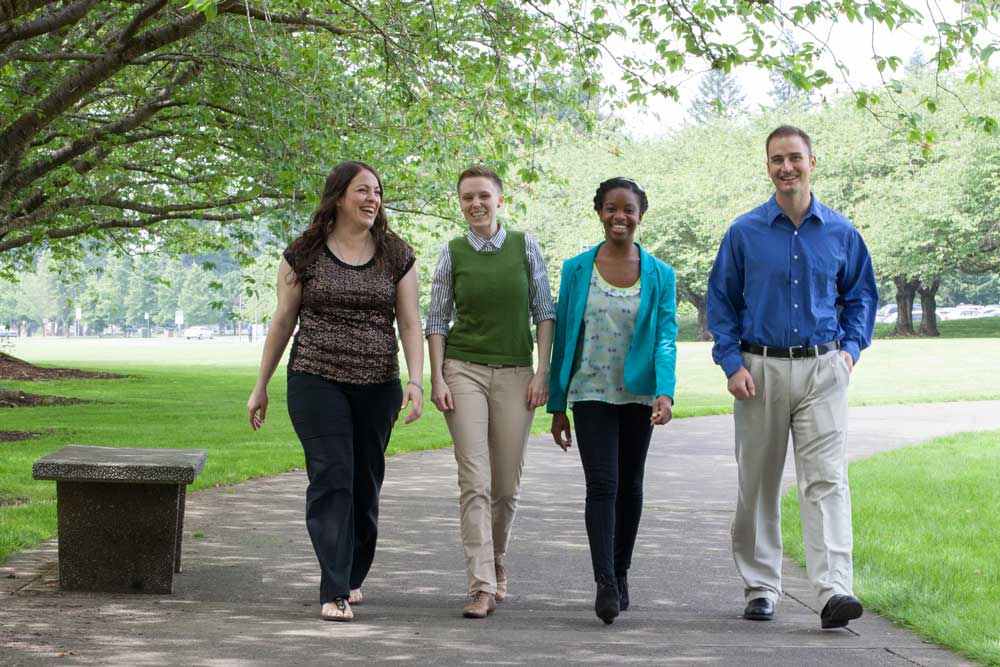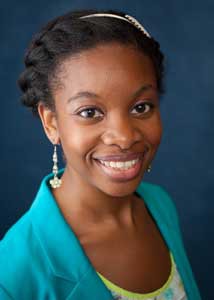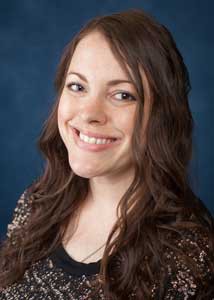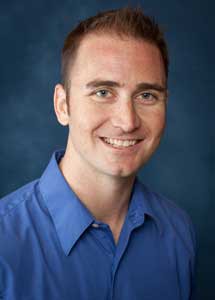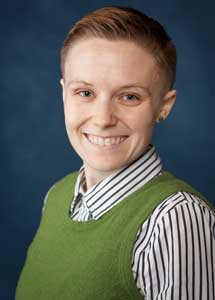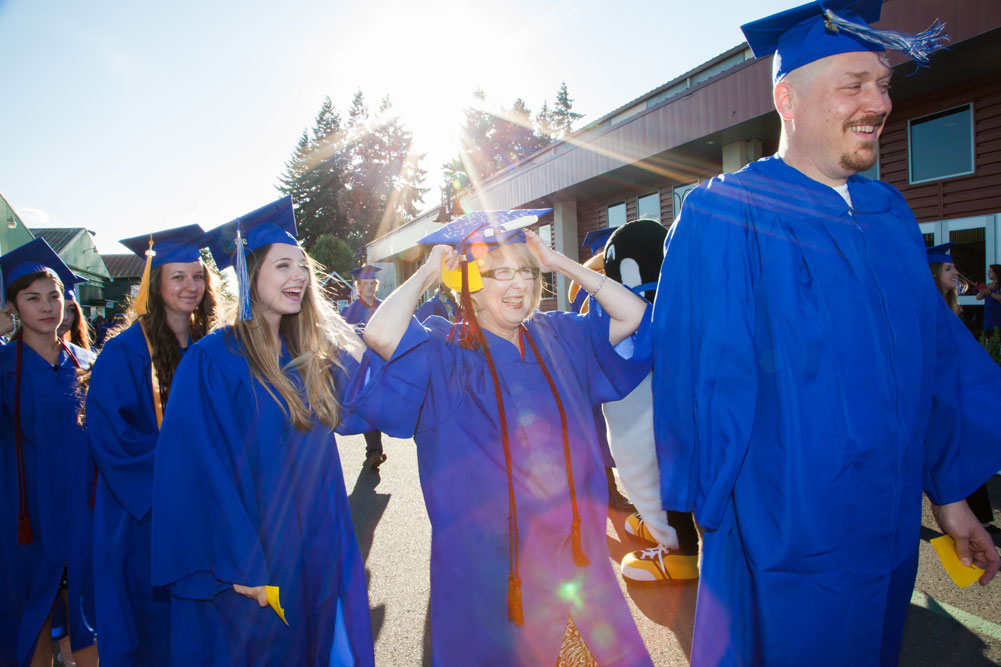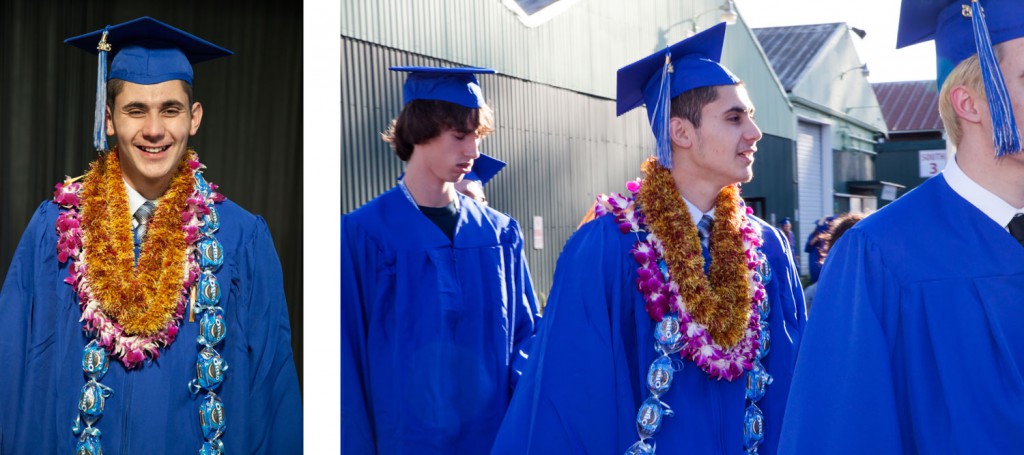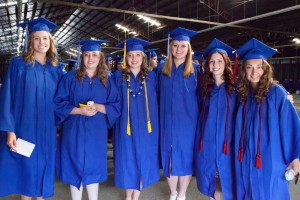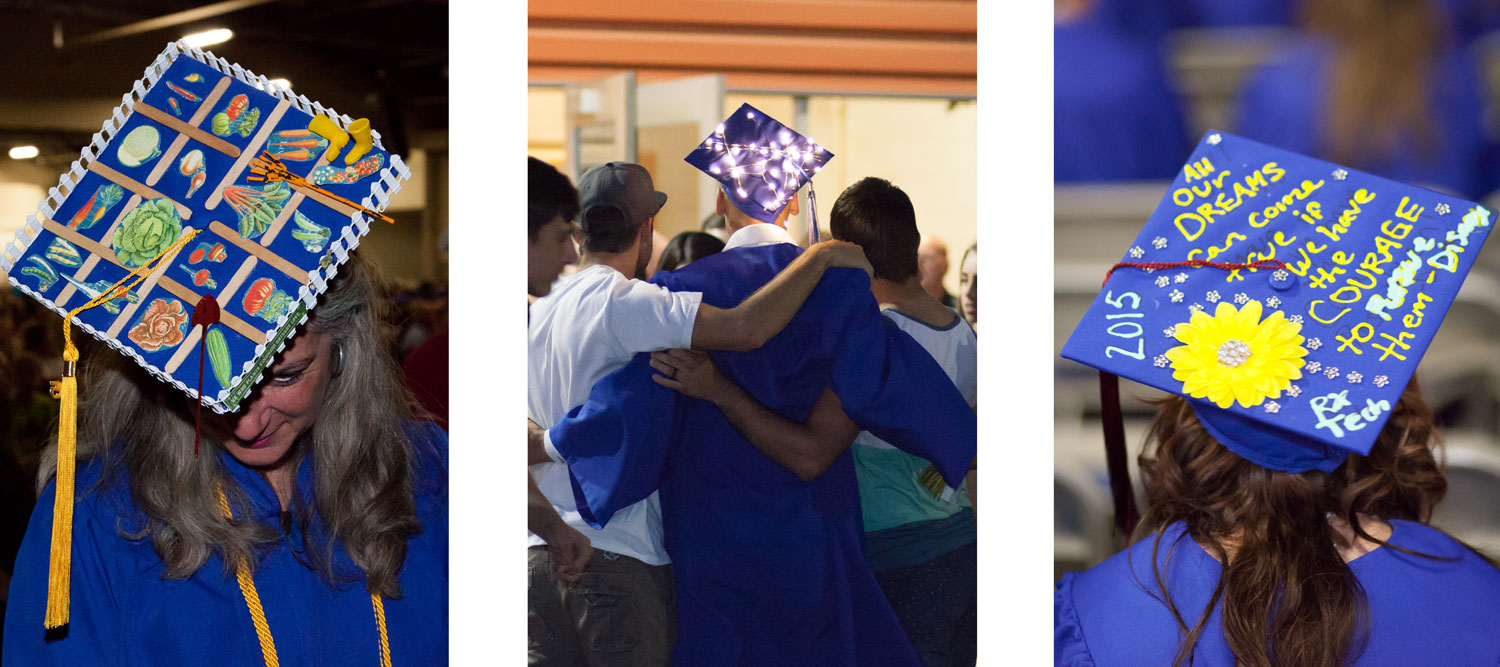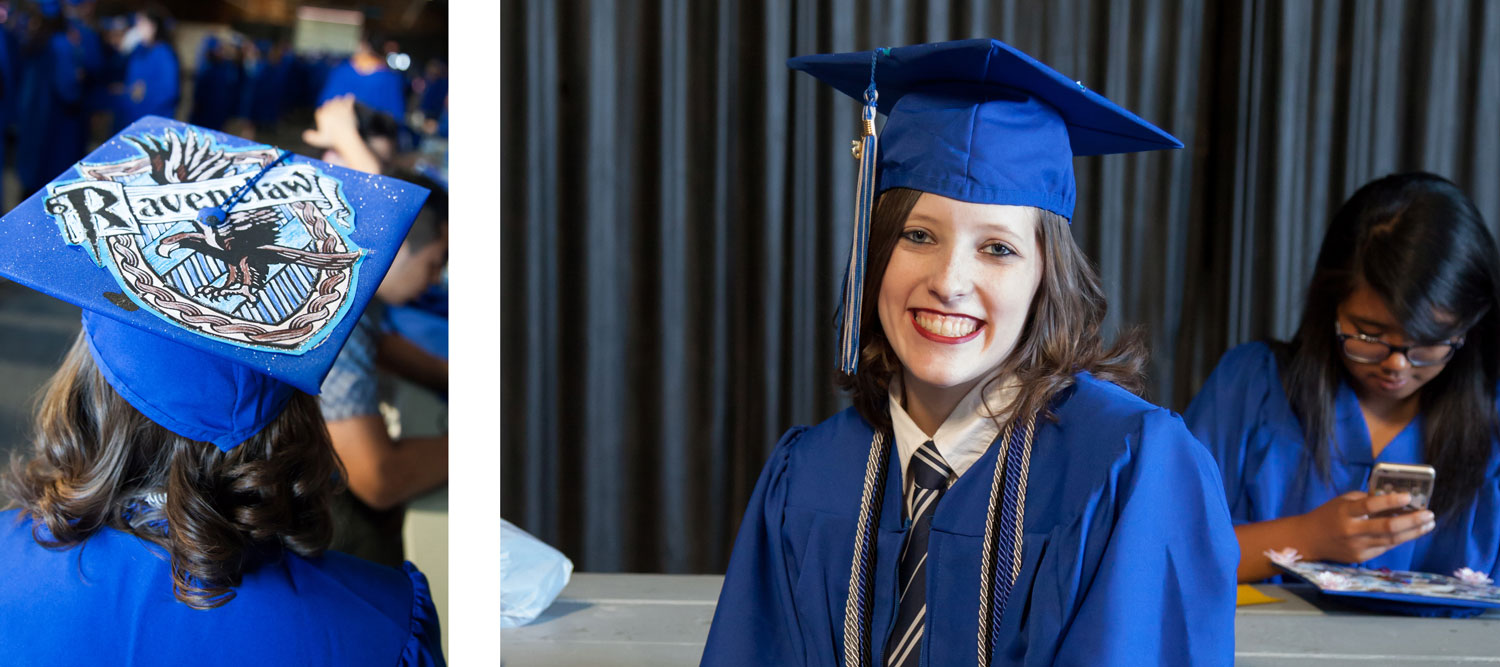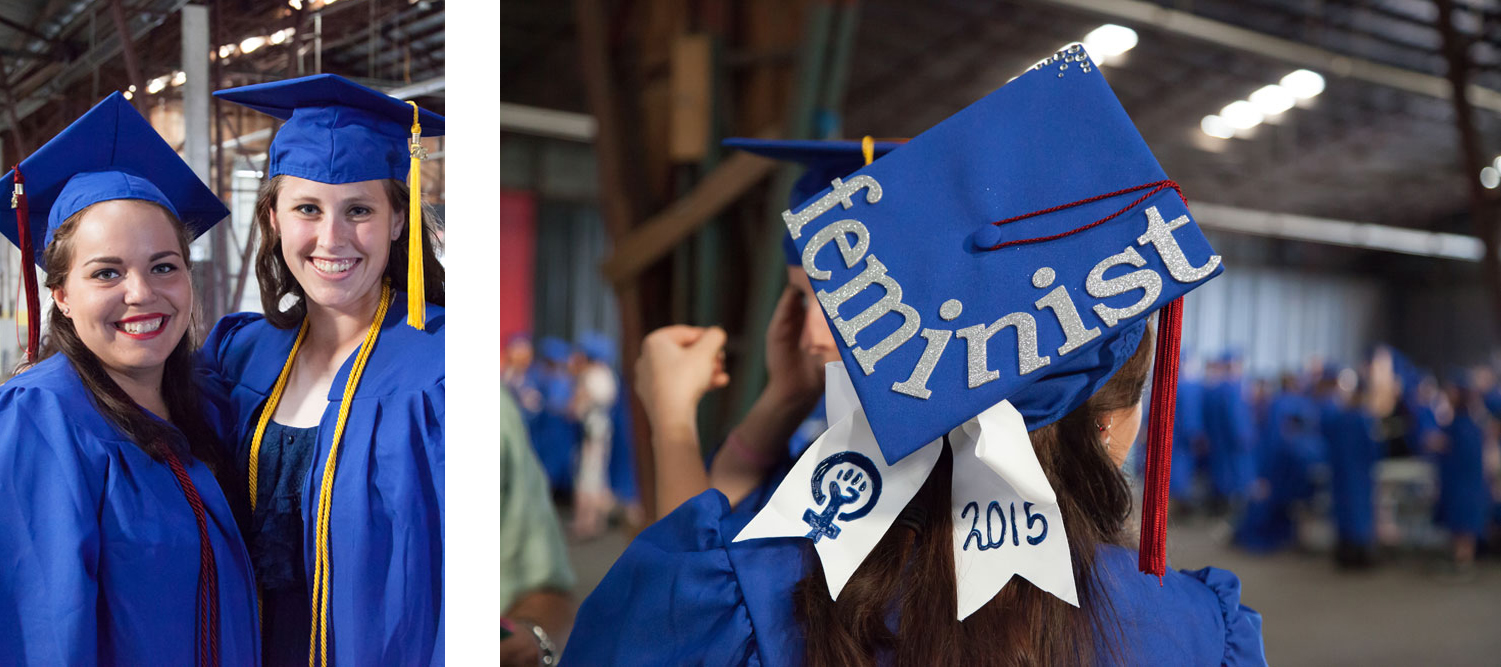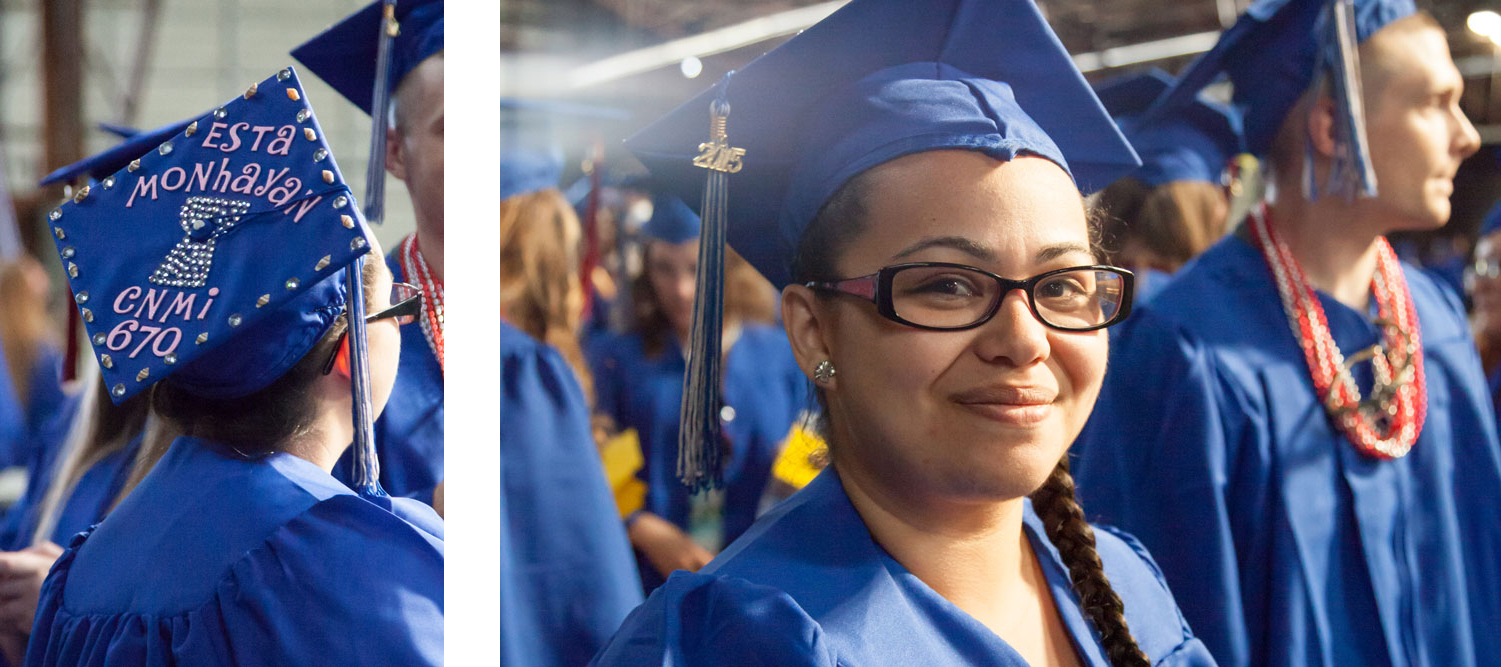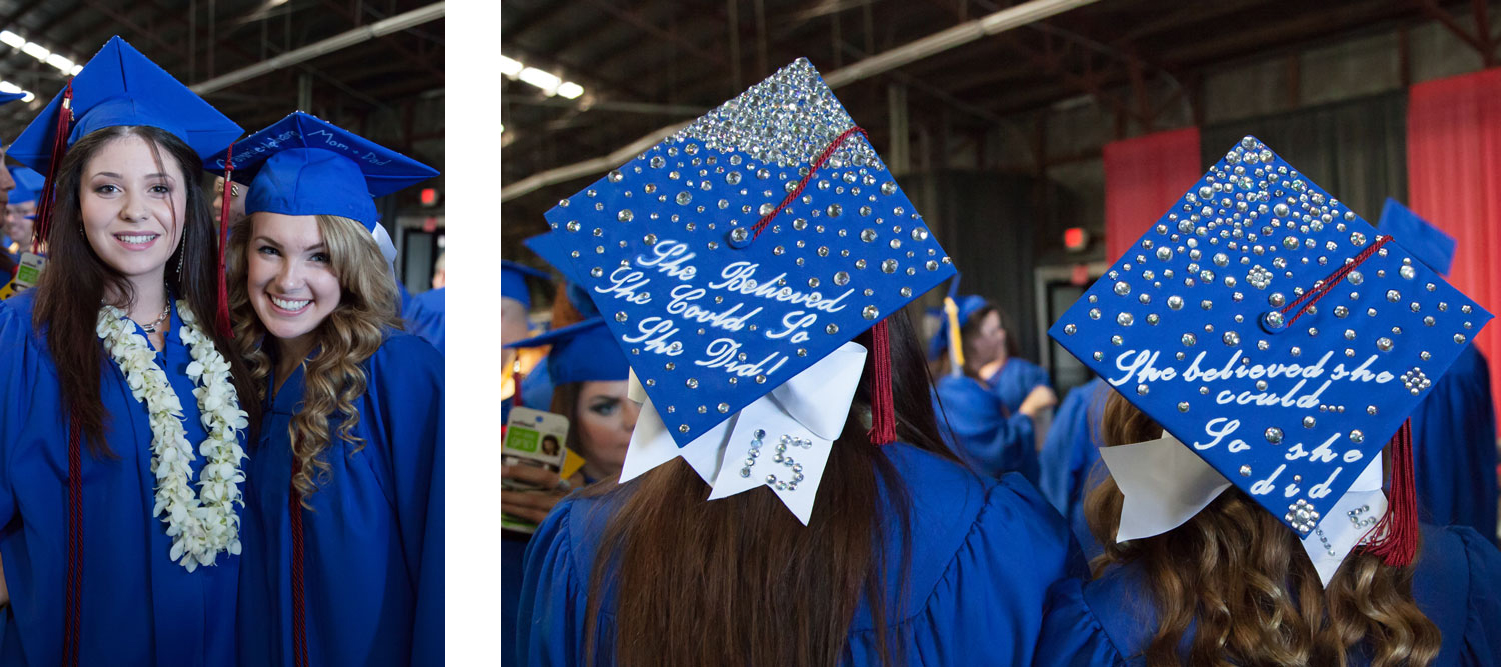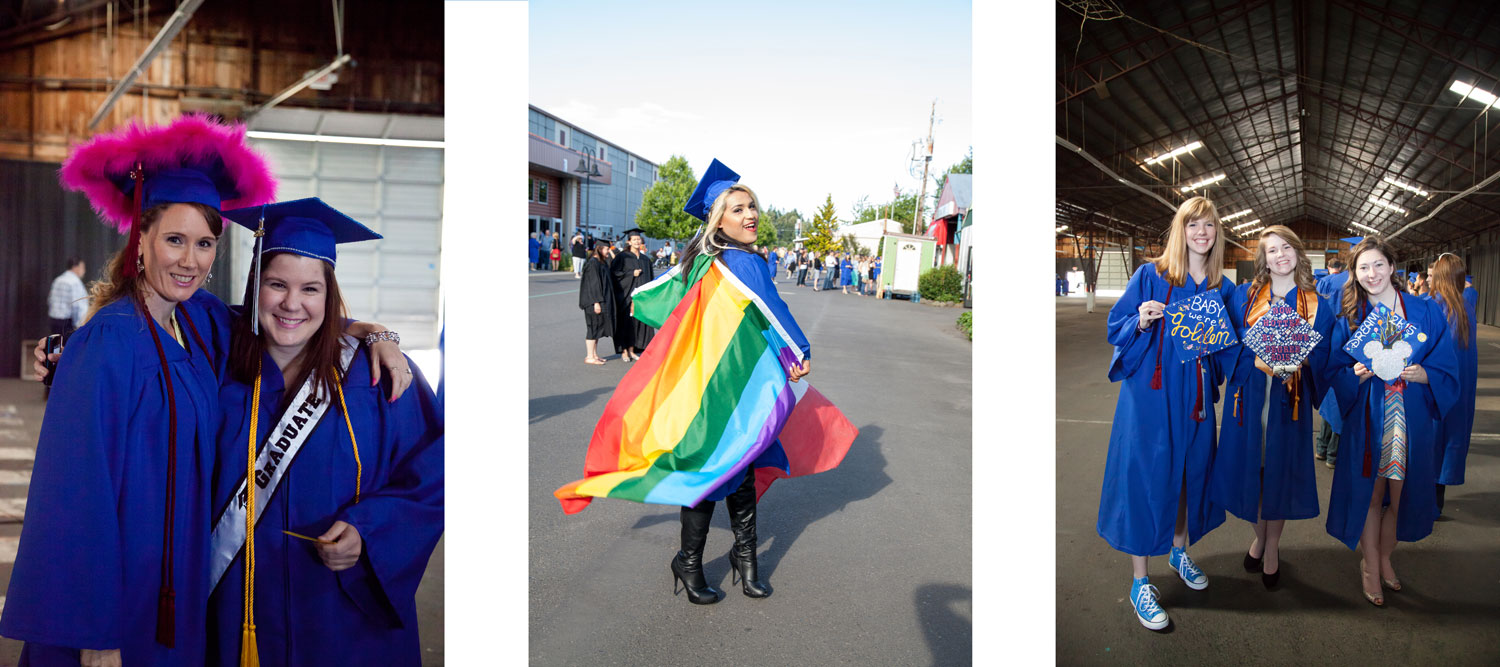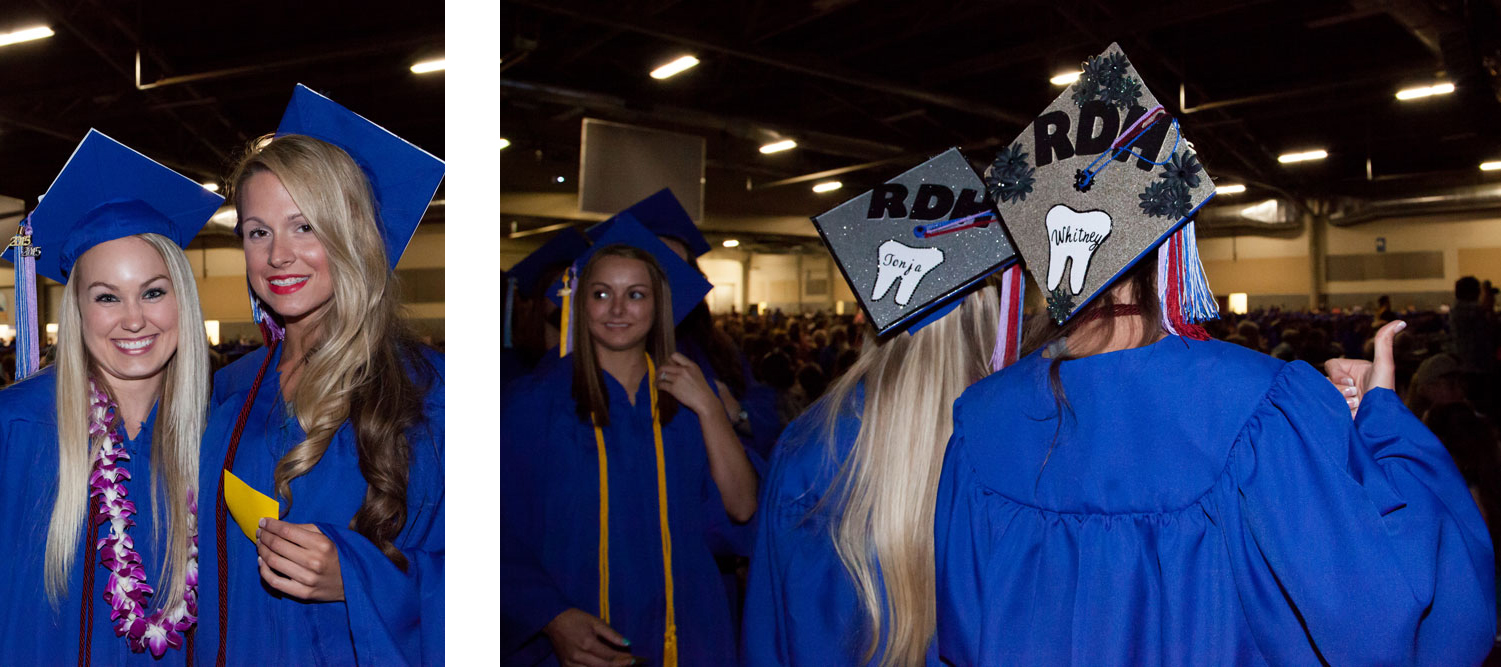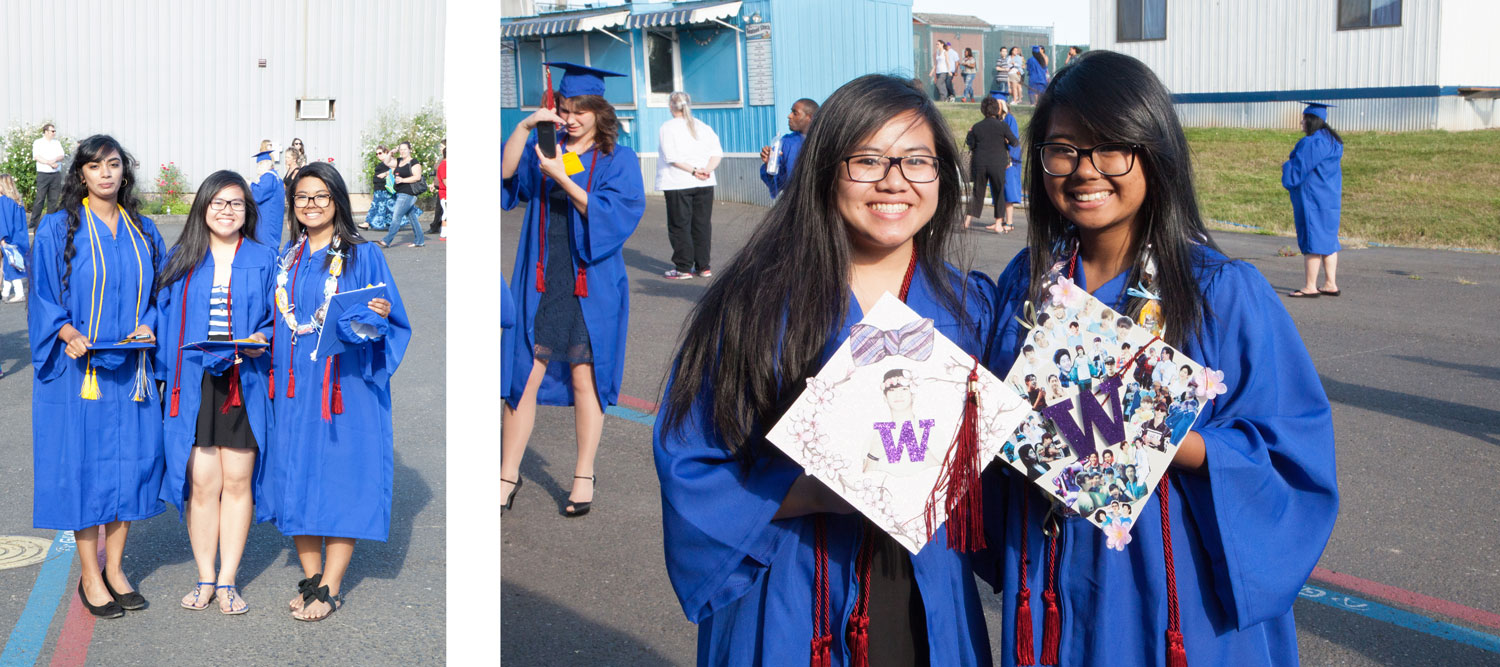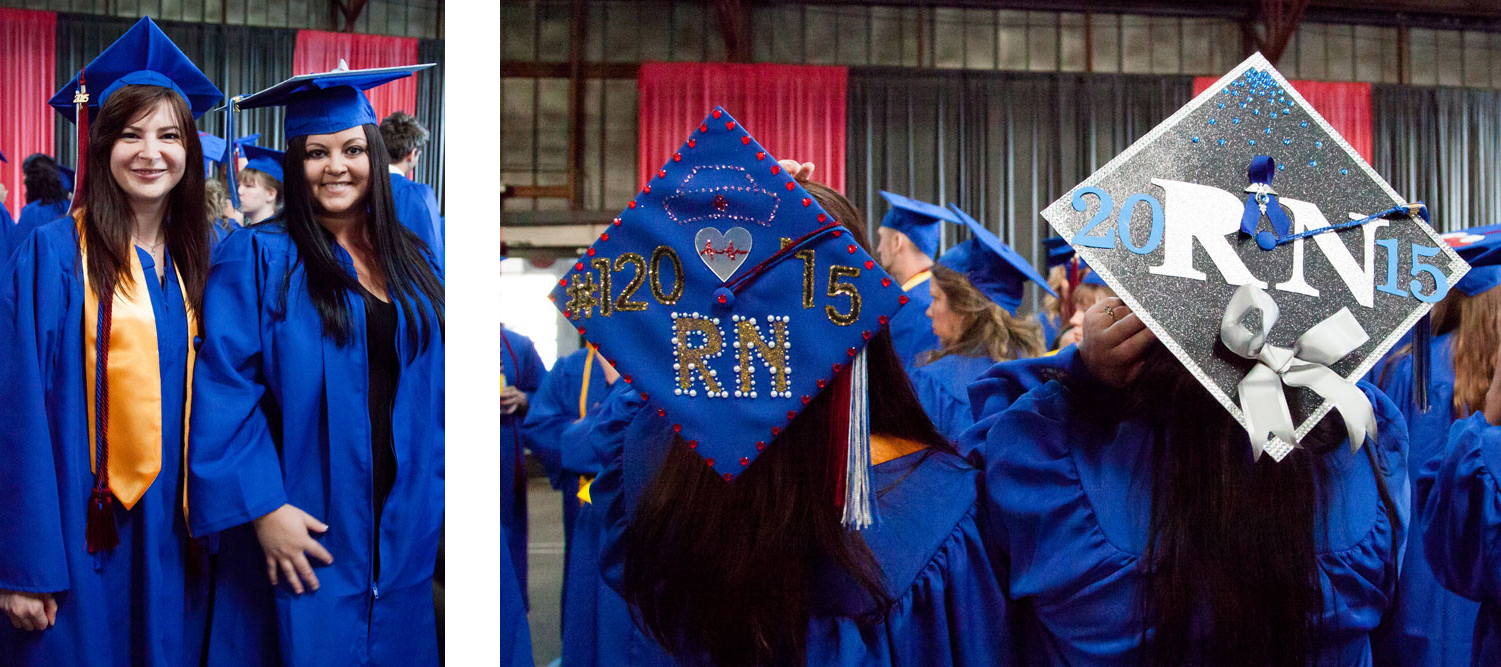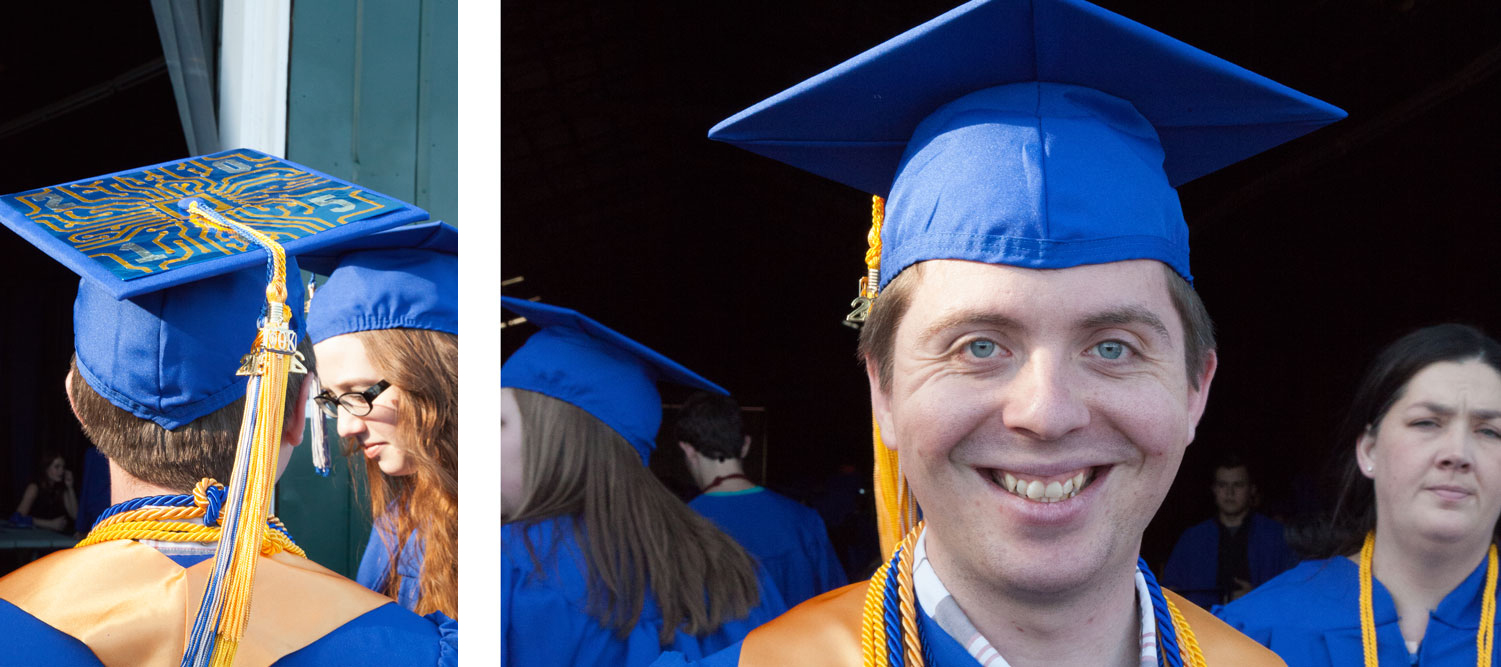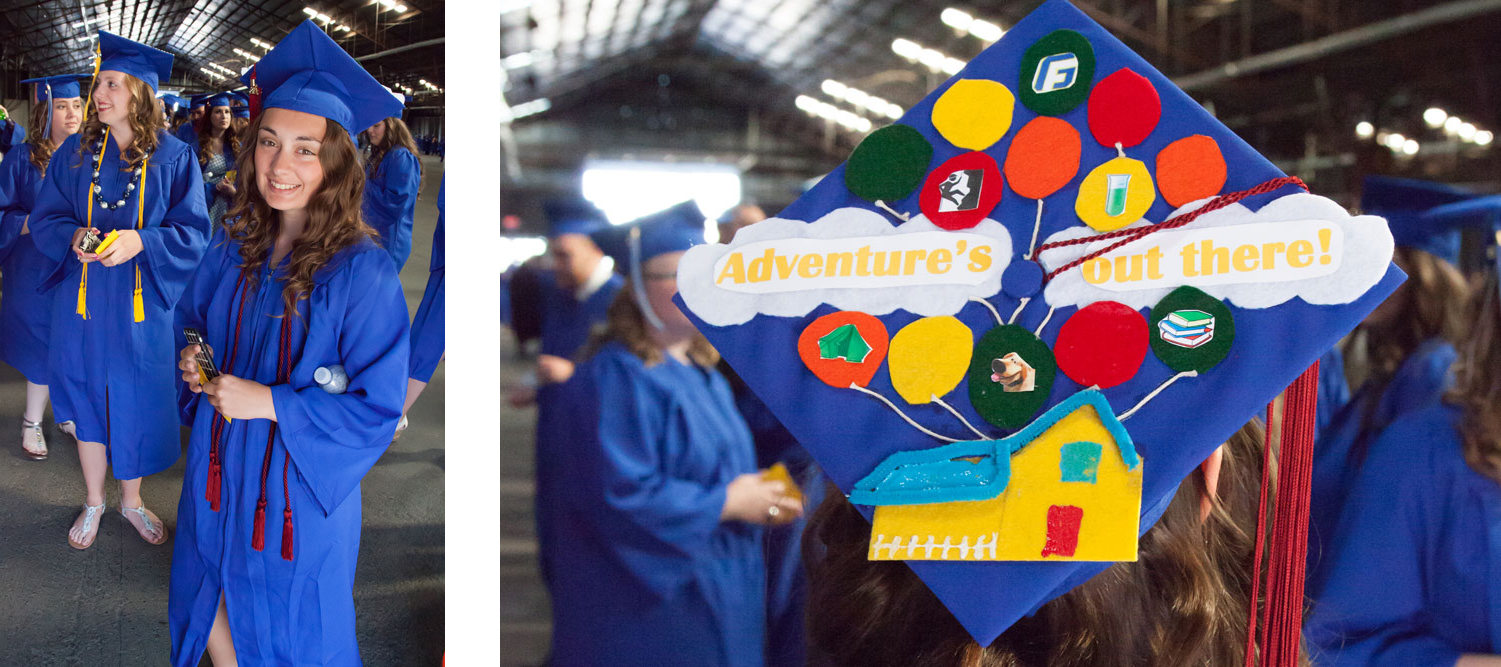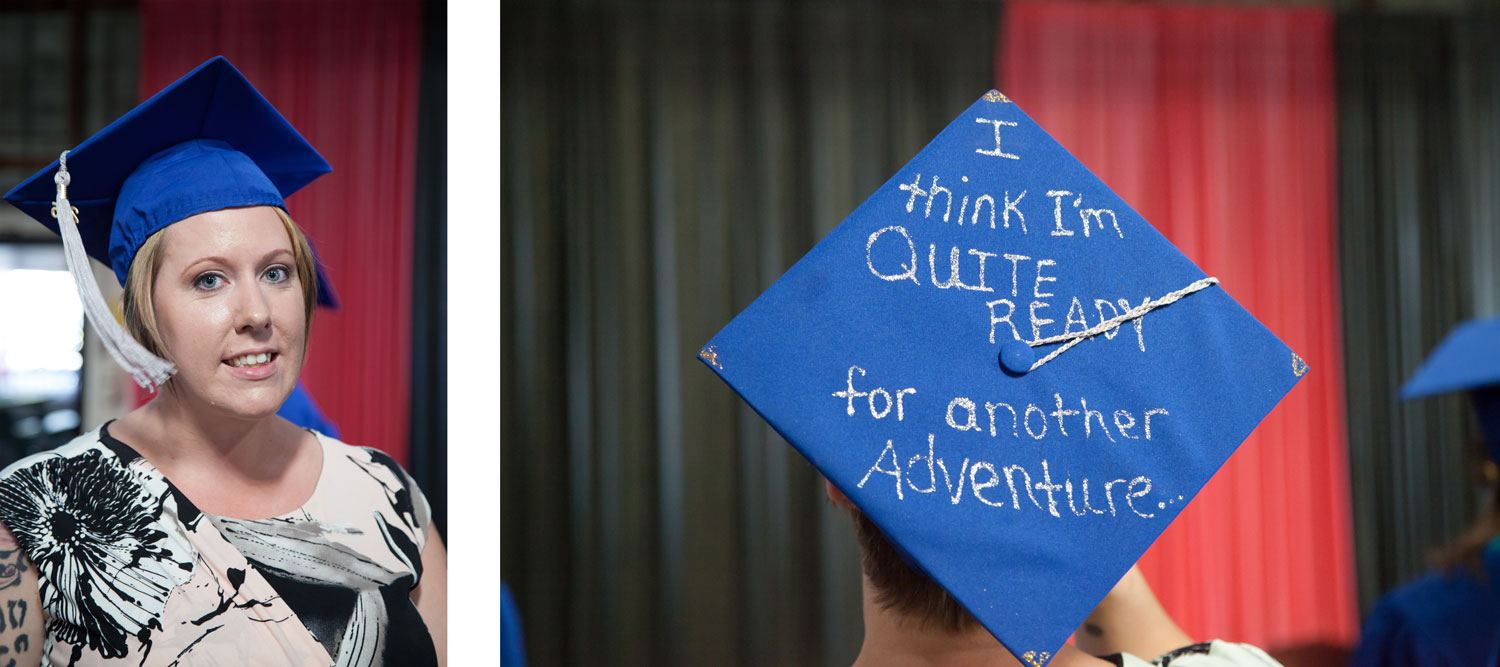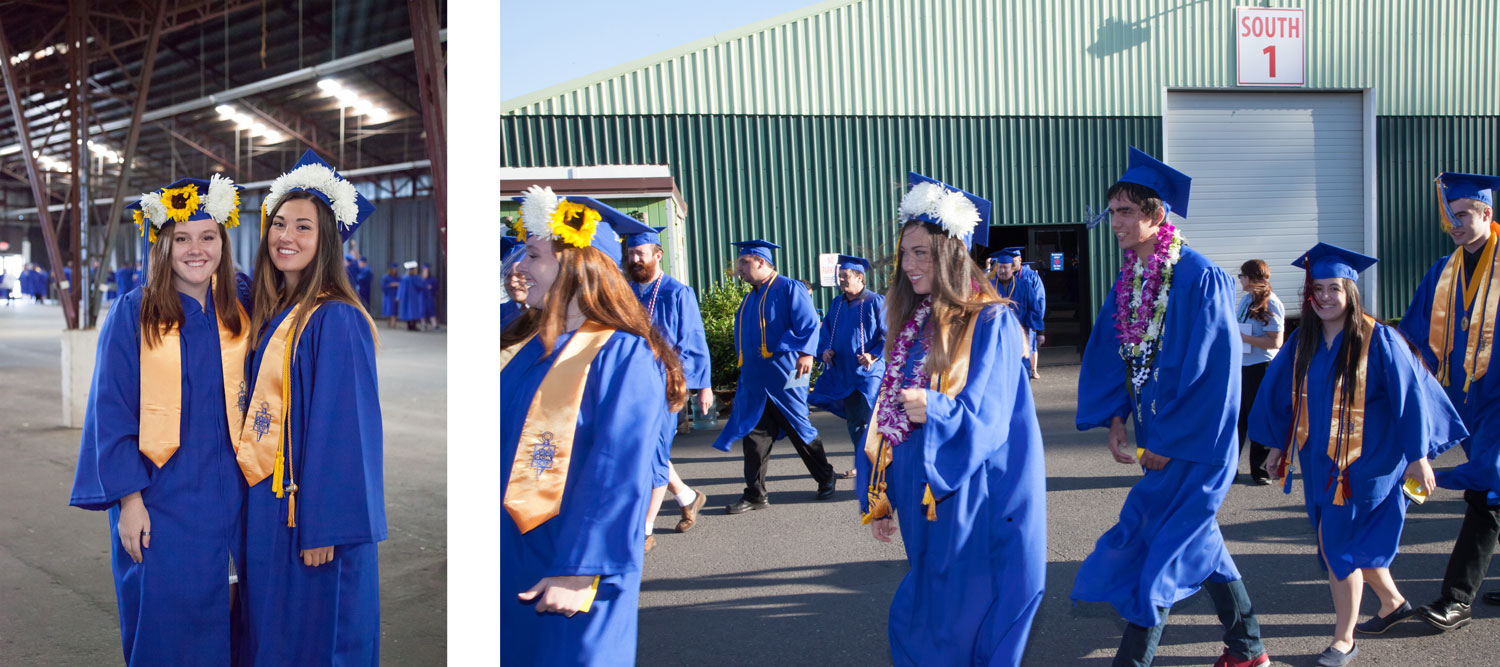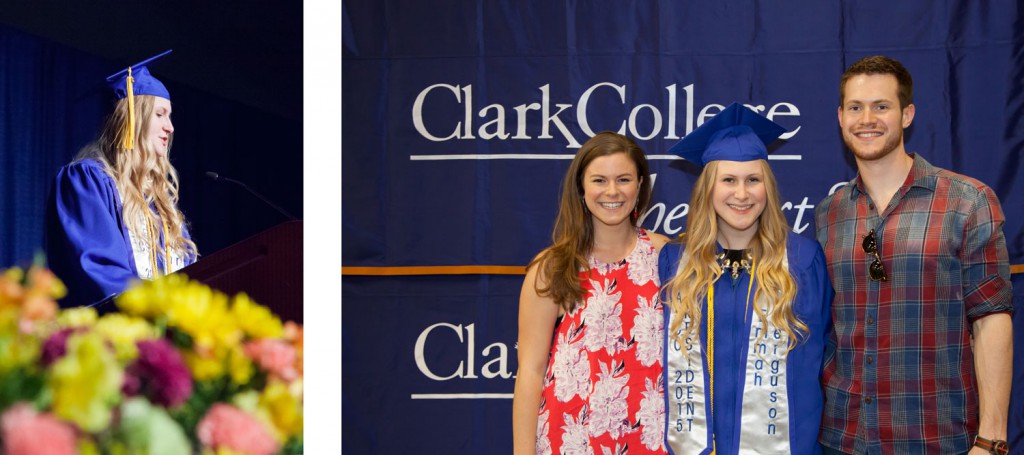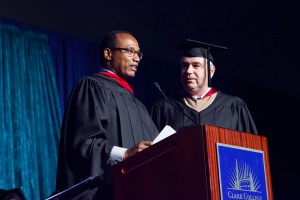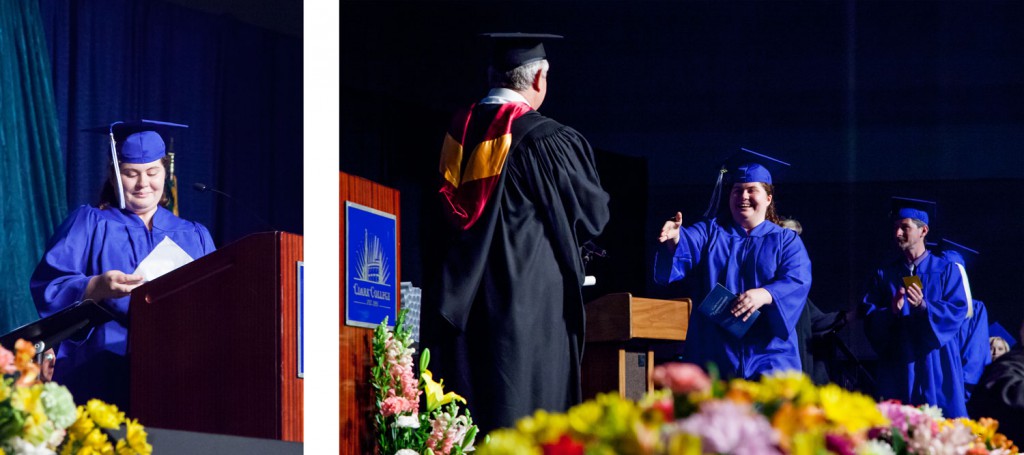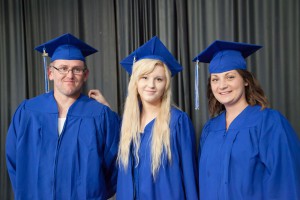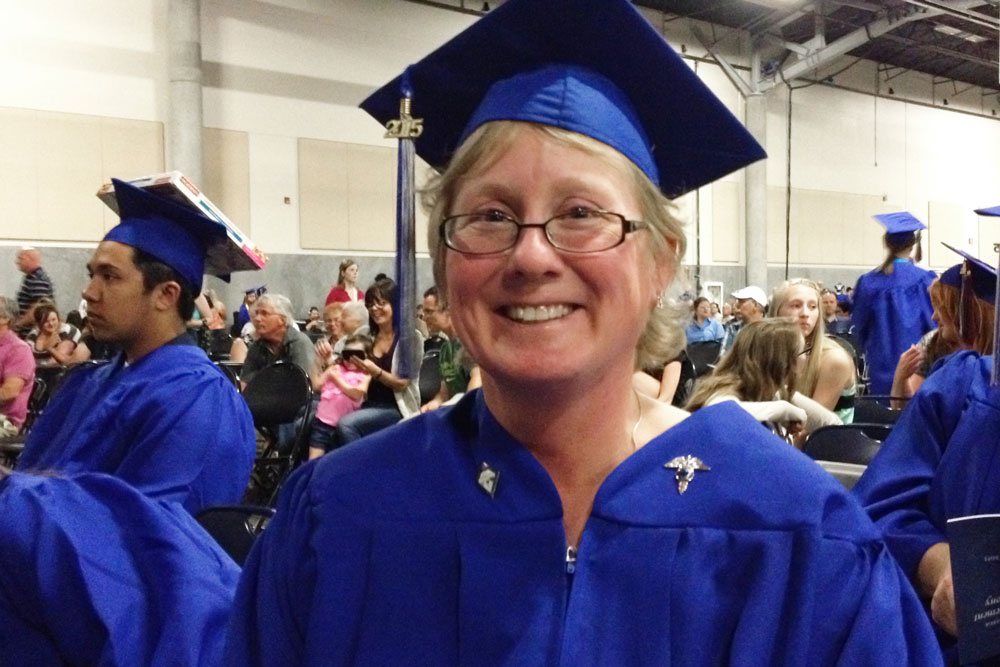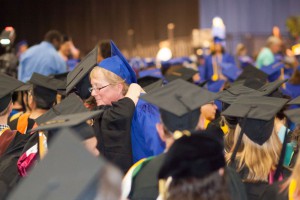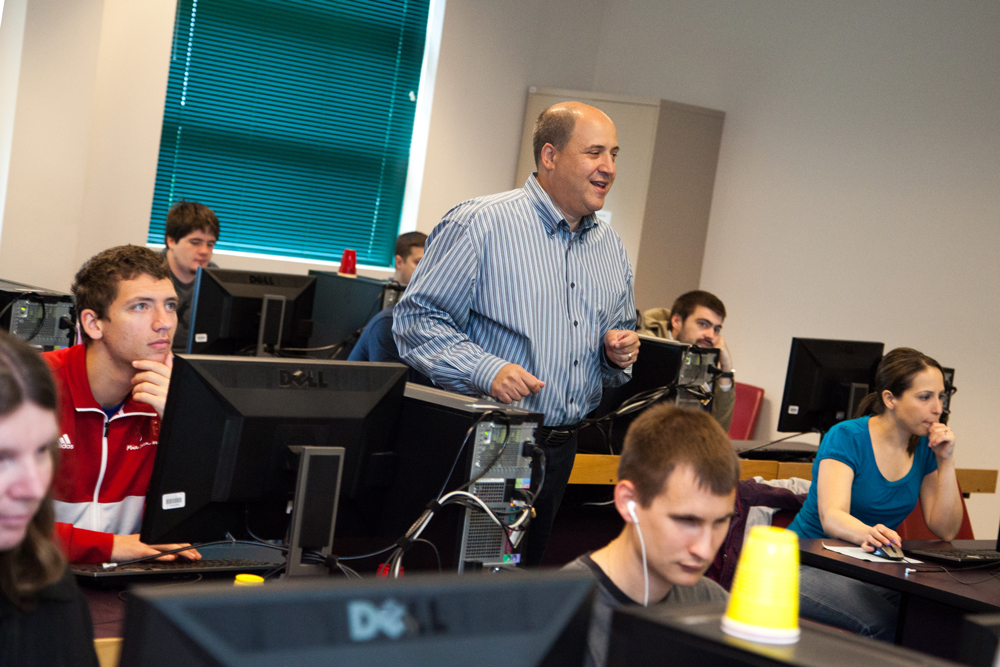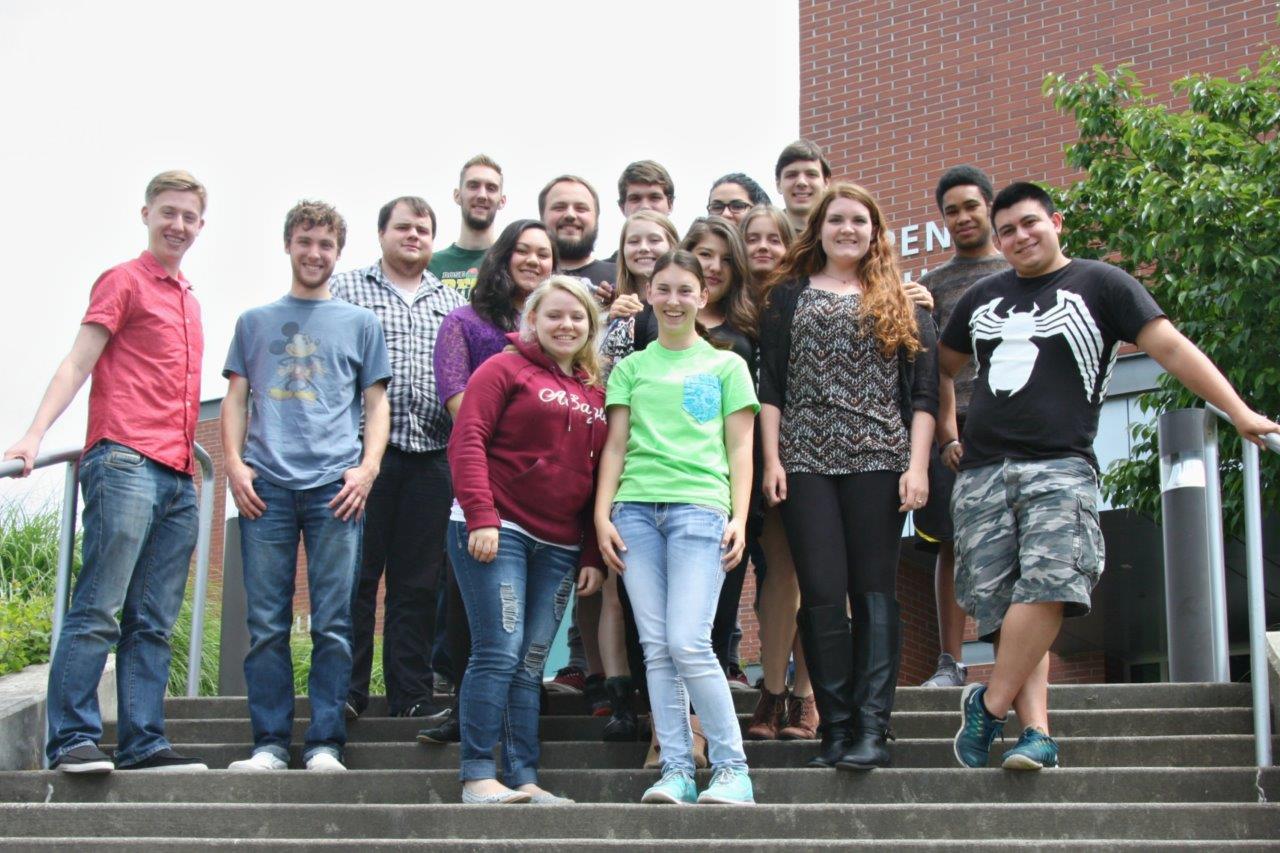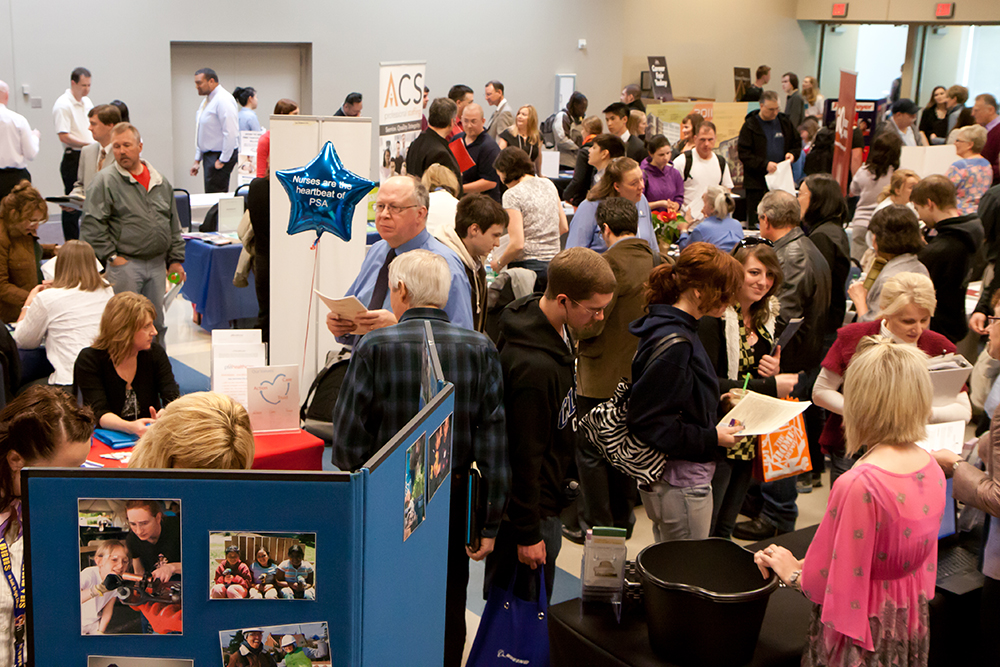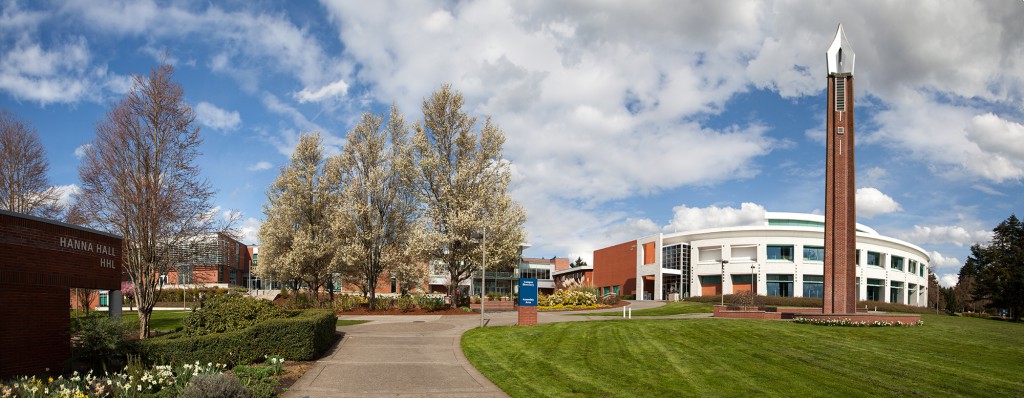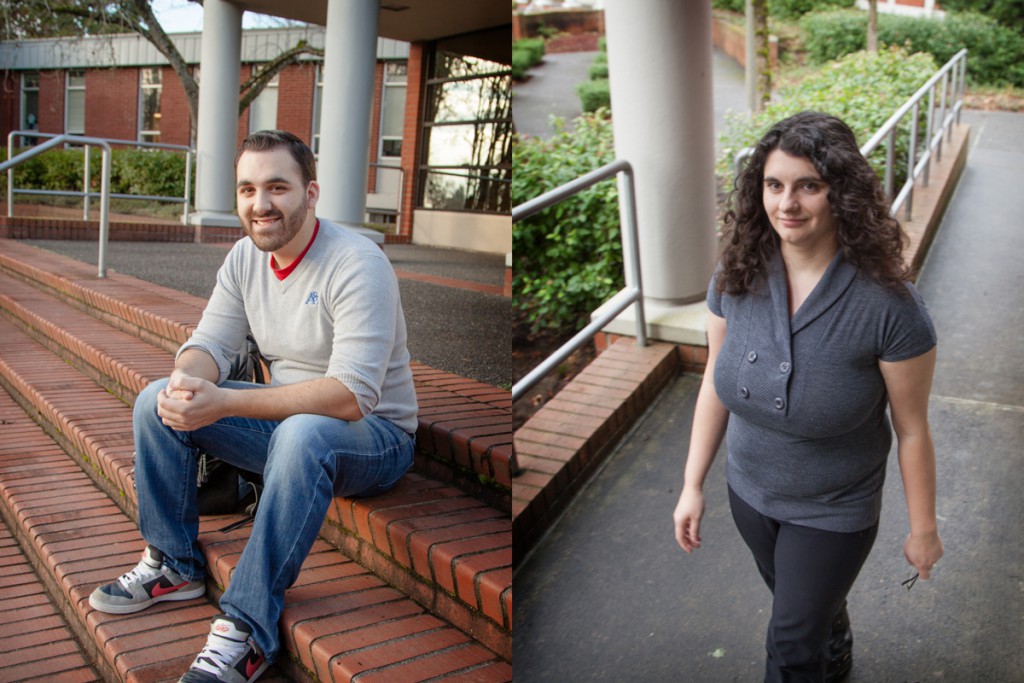
Martin Parrao, left, and Lidiya Nikolayev, right, are Clark’s 2015 representatives to the All-Washington Academic Team.
Two students whose stories began on almost opposite sides of the earth have found success in the face of adversity at Clark College. Martin Parrao and Lidiya Nikolayev represented Clark College at the 2015 All-Washington Academic Team Recognition Ceremony, held on March 26 at South Puget Sound Community College in Olympia, Washington.
About Lidiya Nikolayev
About Martin Parrao
About the All-Washington Academic Team
About Lidiya Nikolayev
Lidiya Nikolayev, 30, came to the United States with her parents from Moldova when she was almost 6 years old. From early on, she displayed a head for business. “When I was 12, I met a nice lady who’s a real estate agent, and she taught me to read contracts,” recalls Nikolayev, who speaks English, Turkish, Russian, and Hindi. “My family had a side business buying homes and fixing them up to resell, so I started helping with that.”
Small wonder, then, that Nikolayev is now pursuing a career in finance. But there is a more personal and painful reason for her interest as well. The truth is, she began to hone her financial acumen while caring for her son, Ivan, who was born with cerebral palsy. Faced with daunting medical bills and limited income, Nikolayev became expert at managing a budget. Ivan passed away in 2011; as Nikolayev recovered from her trauma, she became determined to go to college and find a career that would not only make her self-sufficient, but allow her to create family-friendly jobs for other parents. “No parent should have to sacrifice time with their children to have a career,” she says. “More companies in the corporate world should be creating work environments with flexible schedules that allow employees better balance between work and family responsibilities.”
Nikolayev enrolled at Clark in 2013, and quickly gained notice for both her aptitude and drive. She has just finished a quarter in which she took a staggering 22 credits, divided between classes at Clark College and at a community college in Texas, where she is enrolled in online courses. This is even more challenging than it sounds—because the Texas college is on a semester system and Clark uses a quarter system, Nikolayev can be prepping for a midterm in one class while taking a final in another, and she rarely gets a vacation since one or the other of her schools is almost always in session while the other one is on break.
Nikolayev devised this strategy to facilitate a possible transfer to the University of Texas at Dallas, whose business program she admires. “For six months I bothered the heck out of both colleges’ advising and credentials departments figuring it all out,” she says with a laugh. The plan worked: Nikolayev has been accepted at UTD, as well as at multiple other universities, though she is still weighing her options before deciding on a transfer destination.
In addition to her turbo-powered studying, Nikolayev continues to help with her family’s farm; serves as student representative on many of the college’s administrative committees; and volunteers with both Phi Theta Kappa and the Association for India’s Development. In 2014, she earned an OSWALD Award from Clark College Student Life for her volunteer activities. And she has maintained a high grade point average all the while. Her secret? Not a lot of sleep and a whole lot of personal organization, plus using the flexibility of online learning to do coursework when it fits her schedule.
Nikolayev says she learned her work ethic early on from her parents. In addition to farming and investing in real estate, her father does seasonal work at factories, while her mother worked 14-hour shifts as a housekeeper during Nikolayev’s childhood—often taking night shifts so she could spend the days taking care of the children.
“I’m going to be the first person in my family to get a bachelor’s degree,” Nikolayev says. “I’ll work as hard as it takes to get there.”
About Martin Parrao
When Martin Parrao’s family moved from Chile to the Pacific Northwest in 2006, Parrao was already 15 years old. He spoke no English. “The process of learning English has been one of the longest and most difficult challenges I have ever faced,” he says. “Going through high school was very difficult for me, but I was determined to work extra-hard so that one day I could reach my goals and prove to my parents that their efforts to come to this country were not in vain.”
That hard work paid off: Parrao went from taking English as a Second Language classes to graduating from Battle Ground High School with honors in 2009. He enrolled at a four-year university, but quickly encountered a new challenge. “I took one class, and it was super-expensive,” he says. “I couldn’t afford to keep going.”
Parrao, 24, is a legal resident of this country, but he is not yet a citizen. This means that up until recently, he could qualify for in-state tuition, but not for federal or state financial aid. A 2014 Washington state law called the “Real HOPE Act” now allows students like Parrao to be eligible for state financial aid, but at the time, Parrao found himself facing thousands of dollars in tuition each quarter, even if he attended part-time, with no hope of assistance.
Parrao regrouped. He dropped out of university, realizing that his limited funds would go farther at Clark. Even so, he had to work for months to save enough money to take a single class, meaning that for his first three years at Clark, he could only afford to take one or two classes a year.
At the end of 2011, another challenge emerged: His family decided to return to Chile. Many young people might have taken that as a sign to give up, but Parrao became even more determined to pursue his dreams. “For me, just the sacrifice of having to learn a whole new language when I was 15, and working so hard to graduate high school with honors—to go back would mean all that effort was wasted,” he says.
Parrao began applying for scholarships, working closely with Clark College Outreach/Scholarship Coordinator Lizette Drennan to identify opportunities. “Lizette was a great help,” Parrao says. “Every time I had a question, she was there for me.” The work paid off in 2013 when Parrao received a scholarship that allowed him to begin attending Clark part-time, followed by another that allowed him to become a full-time student.
At first, Parrao wanted to get a terminal two-year business degree; he assumed he wouldn’t be able to afford more than two years of college. But as he continued to excel in his coursework (he currently holds a 3.96 grade point average) and as scholarships and the Real HOPE Act began to make attending college full-time affordable, he realized that he could do more. “I realized, ‘This is the moment,’” says Parrao, who is engaged. “Because if you go out and work full-time and get married, you will not be able to do everything you can do right now.”
Parrao chose to return to Clark to complete a transfer Associate of Arts degree. He plans to transfer in the fall to the Washington State University Vancouver, where he will pursue a bachelor’s degree in Accounting. Meanwhile, he continues to work two jobs—as a computer lab aide in Clark College’s Tech Hub, and as sales support for an industrial supplies company. He hopes to one day run his own business so he can provide jobs and scholarships to those who, like him, have more potential than resources.
Parrao says he greatly appreciates the opportunities provided to him by employers, friends, scholarship donors, and Clark College. “For my situation, this is probably the only way I could ever have done it,” he says. “It made me realize how important it is to have opportunities for everyone. And that was given to me at Clark. It’s changed my life.”
About the All-Washington Academic Team
The All-Washington Academic Team is a program of Phi Theta Kappa, the honor society for two-year colleges. The team honors students who demonstrate a commitment to success in the classroom and service in their communities, and has become the showcase of the Washington community and technical college system. This year’s team consists of 65 students representing all the state’s 34 community and technical colleges.
Gov. Jay Inslee was on hand to acknowledge recipients at the 20th annual ceremony, hosted by South Puget Sound Community College in Olympia, Wash. Phi Theta Kappa, the Trustees Association of Community and Technical Colleges (TACTC), the Washington Association of Community and Technical Colleges, and the State Board for Community and Technical Colleges sponsor the event. All-Washington Academic Team members received scholarships from KeyBank and became eligible for scholarships from TACTC, the Washington State Employees Credit Union, and transfer scholarships from all four-year colleges and universities but one in Washington State.
Photos: Clark College/Jenny Shadley
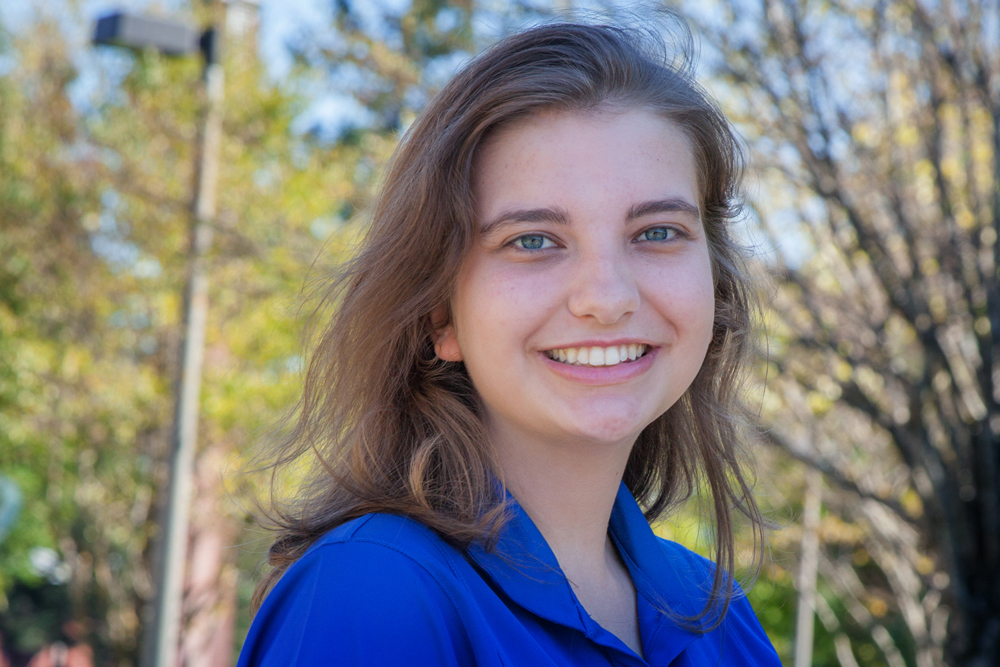 My name is Lily Hart, and I am a student at Clark College. I’m also the Managing Editor of Phoenix and was Assistant Literary Editor last year. Phoenix is Clark College’s award-winning literary and art journal. Run by student editors and faculty advisers, it publishes work from Clark College students, faculty and alumni—mostly students. We publish in print and online, and accept a wide array of work including fiction, creative non-fiction, poetry, ceramics, design work, music, and dramatic recitals. You can go online at clarkphoenix.com to get a full list. This year, Phoenix is proud to introduce a new category: graphic novels.
My name is Lily Hart, and I am a student at Clark College. I’m also the Managing Editor of Phoenix and was Assistant Literary Editor last year. Phoenix is Clark College’s award-winning literary and art journal. Run by student editors and faculty advisers, it publishes work from Clark College students, faculty and alumni—mostly students. We publish in print and online, and accept a wide array of work including fiction, creative non-fiction, poetry, ceramics, design work, music, and dramatic recitals. You can go online at clarkphoenix.com to get a full list. This year, Phoenix is proud to introduce a new category: graphic novels.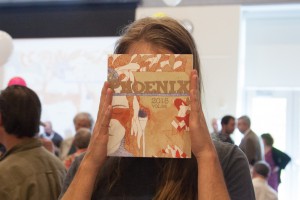 I am hoping that this post will give you insight into the behind-the-scenes process of Phoenix—and will maybe prompt you to submit something to the journal yourself!
I am hoping that this post will give you insight into the behind-the-scenes process of Phoenix—and will maybe prompt you to submit something to the journal yourself!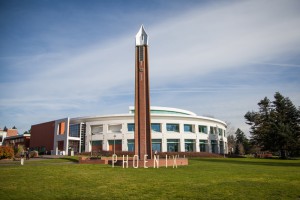 You also get real-world experience in being an editor, gaining organization skills and managing projects, which are all perfect skills for today’s job market. As Jennie Avens, our Fine Arts editor from 2015 and again staff for 2016, says, “Working with this team was a great practical experience that gave me a sneak peek of what to expect if I get into publishing after graduation.” Whether a student’s career goals lie in editing and the arts, or in something completely different, the skills gained from being on Phoenix gives are always applicable.
You also get real-world experience in being an editor, gaining organization skills and managing projects, which are all perfect skills for today’s job market. As Jennie Avens, our Fine Arts editor from 2015 and again staff for 2016, says, “Working with this team was a great practical experience that gave me a sneak peek of what to expect if I get into publishing after graduation.” Whether a student’s career goals lie in editing and the arts, or in something completely different, the skills gained from being on Phoenix gives are always applicable.